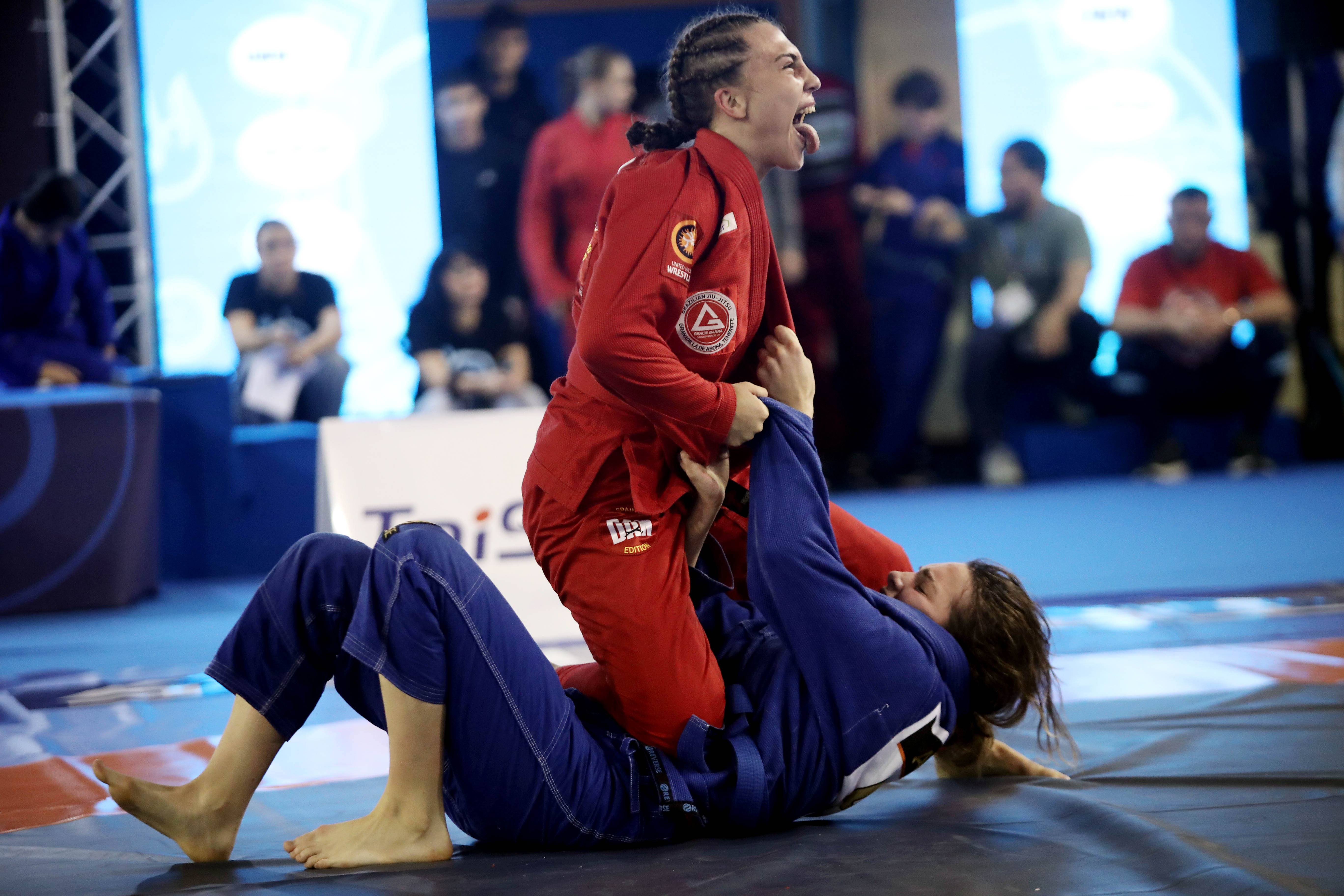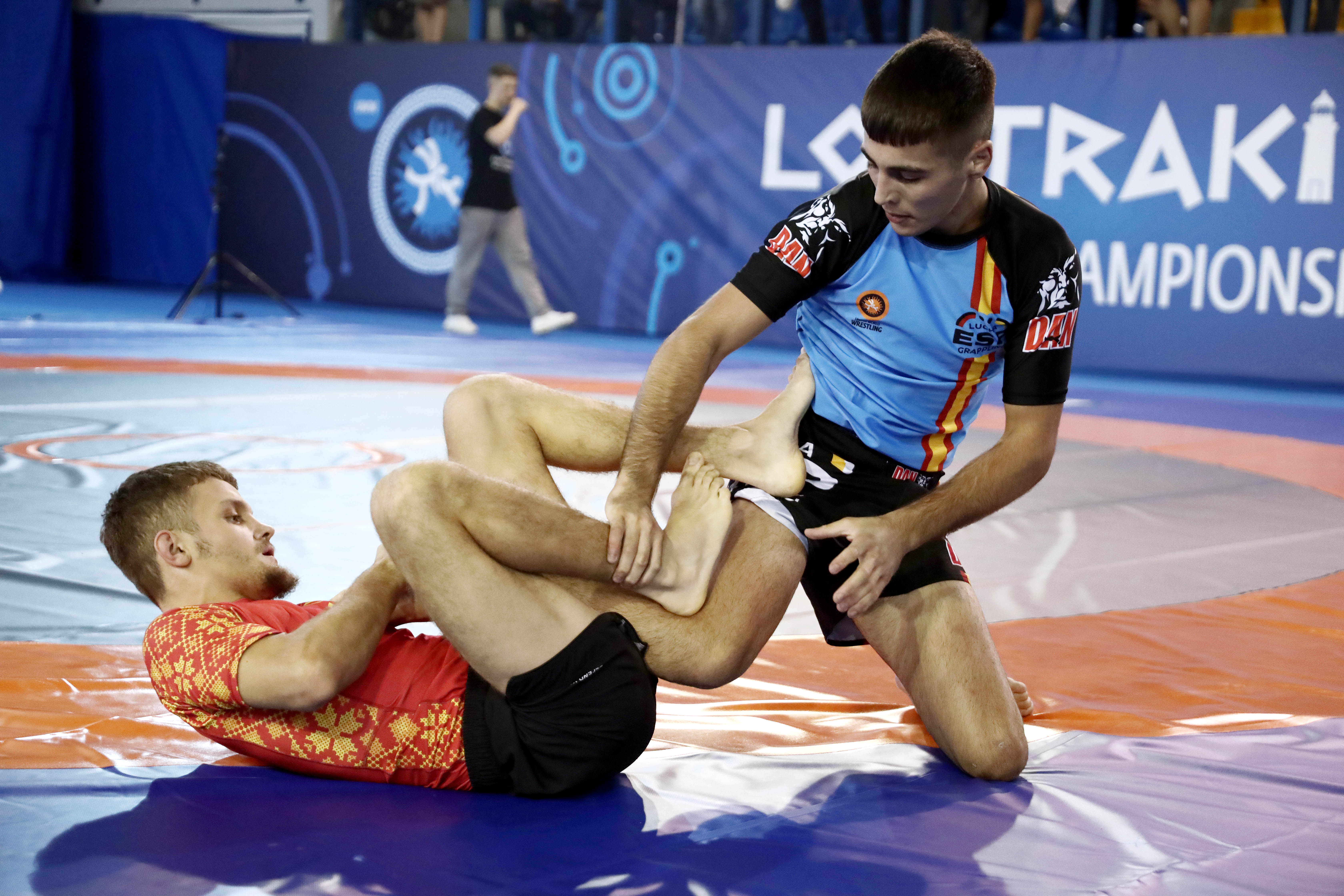UWW Wrestlers of the Year: Tazhudinov, Tynybekova, Orta
Tuesday, December 19, 2023 - 13:11 By United World Wrestling Press

CORSIER-SUR-VEVEY, Switzerland (December 18) -- When the world was glued to their screens to watch a potential Kyle SNYDER (USA) vs Abdulrashid SADULAEV (AIN) semifinal at the World Championships in Belgrade. But Akhmed TAZHUDINOV (BRN) ruined those hopes by beating both Snyder and Sadulaev in back-to-back bouts.
For his scintillating run in 2023, a year in which the 20-year-old won gold at the World Championships, Asian Championships, Asian Games and a Ranking Series, Tazhudinov has been named the Freestyle Wrestler of the Year.
His incredible performances throughout the year also earned him 87,520 Ranking Series points helping him reach the number one rank at 97kg.
Having failed to medal at the Ibrahim Moustafa Ranking Series, Tazhudinov managed to change his fortunes with the Asian Championships, winning gold. He followed that up with a gold medal at the Bishkek Ranking Series.
Yet, Tazhudinov did not start as a favorite to win the world title. However, he was sure of winning the gold medal.
"On my way to Belgrade, I knew I could become the world champion," Tazhudinov said after winning the gold medal in Belgrade. "If I didn’t believe in myself, I wouldn’t have even come here."
With that confidence, he earned technical superiority wins over Rio bronze medalist Magomed IBRAGIMOV (UZB), Maxwell LACEY (CRC), and returning world champion Snyder. The semifinal against Sadulaev was seen as his big test as Tazhudinov, a student of Sadulaev School in Dagestan, was up against his mentor.
Sadulaev, a two-time Olympic champion, waned as the bout progressed and eventually pulled out due to injury. The final was no trouble for Tazhudinov as he pinned Magomedkhan MAGOMEDOV (AZE).
A week later, Tazhudinov traveled to Hangzhou, China and won the Asian Games gold medal at 97kg with a comfortable victory over Mojtaba GOLEIJ (IRI).
Greco-Roman Wrestler of the Year: Luis ORTA (CUB)
When Luis ORTA moved to 67kg at the start of the year, he handled two young stars Hasrat JAFAROV (AZE) and Danial SOHRABI (IRI) with ease at the Zagreb Open. But he fell to HUSIYUETU (CHN) in the semifinal. But he returned to the mat with a gold medal at the Pan-Am Championships. Looking to make his name in the new weight class, Orta traveled to Bishkek for the Ranking Series but Husiyuetu once again humbled him.
The World Championships in Belgrade was a big test for Orta, the Olympic champion at 60kg. In 2022, Orta missed a medal at the World Championships at 63kg. But with the Paris Olympics qualification on the line, a different Orta showed up.
After two victories via technical falls, Orta faced returning world champion and home favorite Mate NEMES (SRB). Orta would keep his nerves and eke out a 3-2 win. Slavik GLATSYAN (ARM) troubled him a little but Orta put him away 5-3. A final against Jafarov was never going to be easy but a defensive show managed to help Orta hang on for a 4-3 win and the title, his first.
"I already beat Jafrarov once, but all finals are different," Orta said after winning the title. "They can't be compared. We had a tough match. I think he was a very good opponent, and our fight was worthy of a final match for gold."
Orta was not done yet. His 2023 campaign had golds at the Pan-American Games, Central American and Caribbean Games, and the Henri Deglane tournament. His wins around the world helped Orta tally 86,400 points to emerge as the best Greco-Roman wrestler of the year.
Women's Wrestler of the Year: Aisuluu TYNYNBEKOVA (KGZ)
Every time people count out Aisuluu TYNYBEKOVA (KGZ), the Kyrgyzstan legend marks a thumping return. 2023 was Tynybekova's year as she orchestrated a stunning return to the top of the global stage, amassing an unparalleled 95,575 Ranking Series points after winning titles at the World Championships, Asian Championships, Hungarian and Egyptian Ranking Series events, while also closing out the season with an Asian Games bronze medal.
Tynybekova, 30, was denied world and Asian titles in 2022 by Nonoka OZAKI (JPN) but she avenged both her loss at the Asian Championships in Astana to win the 62kg gold.
Japan threw a new challenge at her in Sakura MOTOKI (JPN) at the World Championships but Tynybekova was up for it, beating Motoki 3-2 in the 62kg final to win her third world title.
The 2023 season also included a Ranking Series gold in Alexandria, a quick turnaround after losses at the Zagreb Ranking Series. Tynynbekova ended the season with a bronze medal at the Asian Games after losing to Ozaki.
Tynynbekova will be chasing history in Paris as she tries to become Kyrgyzstan's first Olympic champion after falling one win short in Tokyo. The silver medalist will have a strong to beat if she wants to win the top medal.


 Angelica NIETO SANTOS (ESP) won the gold medal at 58kg. (Photo: United World Wrestling)
Angelica NIETO SANTOS (ESP) won the gold medal at 58kg. (Photo: United World Wrestling) Jose MARTIN SANCHEZ (ESP) became a double world champion. (Photo: United World Wrestling)
Jose MARTIN SANCHEZ (ESP) became a double world champion. (Photo: United World Wrestling)
Share your thoughts.
Comments